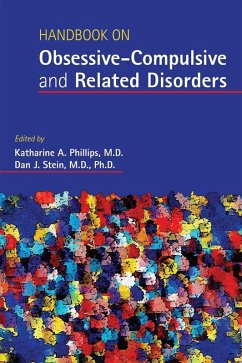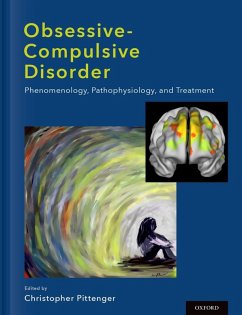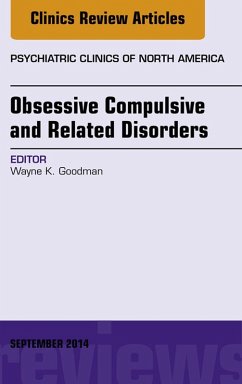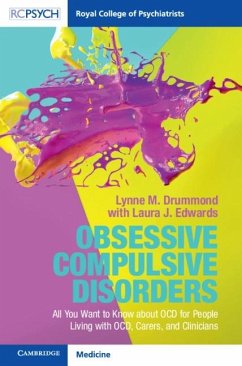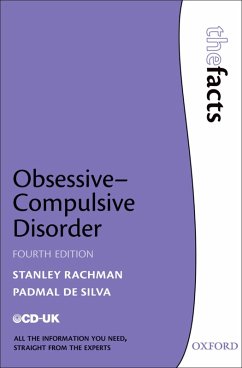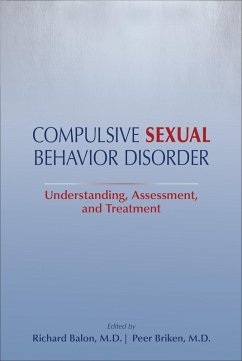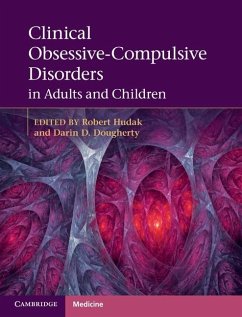
Obsessive-Compulsive Personality Disorder (eBook, ePUB)

PAYBACK Punkte
16 °P sammeln!
Complete yet concise, Obsessive-Compulsive Personality Disorder provides an up-to-date analysis of this widespread, multi-faceted disorder. Estimated to be twice as common as any other personality disorder, OCPD is nevertheless both underrepresented in the literature and frequently misunderstood by clinicians and the patients who grapple with its effects. Misdiagnosis, failure to diagnose, and ignorance of treatment options are common. This text represents the collective contributions of some of the foremost authorities in the field under the leadership of editors who are determined to raise a...
Complete yet concise, Obsessive-Compulsive Personality Disorder provides an up-to-date analysis of this widespread, multi-faceted disorder. Estimated to be twice as common as any other personality disorder, OCPD is nevertheless both underrepresented in the literature and frequently misunderstood by clinicians and the patients who grapple with its effects. Misdiagnosis, failure to diagnose, and ignorance of treatment options are common. This text represents the collective contributions of some of the foremost authorities in the field under the leadership of editors who are determined to raise awareness and educate practitioners and patients alike about the phenomenology, neurobiology, and psychology of this disorder. The book begins with the history and epidemiology of the disorder before proceeding to the clinical features, which are presented using case examples. From there, the text addresses the developmental aspects of OCPD and then considers other related personality disorders that frequently co-occur with or may be mistaken for OCPD. Additional chapters address the developmental aspects of OCPD, the neurobiology and cognitive underpinnings of OCPD, and available treatment approaches.
The following coverage is especially noteworthy: ¿ Four chapters focus on common mental health disorders that can be difficult to differentiate from OCPD, with the most common misdiagnoses being obsessive-compulsive disorder and hoarding disorder. OCPD has also been linked with eating disorders, impulse disorders, and aggression, and the book helps the reader understand the relationship between and among these disorders.¿ Gender and/or cultural factors may influence the presentation of psychiatric disorders, including OCPD, and the book explores the potentially heterogeneous etiology of the disorder and the danger of assuming that one size fits all in terms of treatment.¿ Both psychotherapeutic and pharmacological treatment approaches are examined in detail, including cognitive-behavioral therapies (the rationale behind their use, estimated effectiveness, and limitations of current interventions) and the current state of drug treatment.¿ OCPD can be trying for family members and others who care about the patient, and the book offers a chapter examining what loved ones can do to help, including how to recognize when a personality trait within the OCPD criteria rises to the level of a disorder.¿ Although OCPD can be disabling, there can be positive aspects to having an obsessional personality, and the book discusses the situations under which these traits can be advantageous. Down-to-earth, clinically rich, and unique, Obsessive-Compulsive Personality Disorder will help clinicians navigate the thorny OCPD assessment, diagnosis, and treatment path while providing information and comfort to patients and their families.
The following coverage is especially noteworthy: ¿ Four chapters focus on common mental health disorders that can be difficult to differentiate from OCPD, with the most common misdiagnoses being obsessive-compulsive disorder and hoarding disorder. OCPD has also been linked with eating disorders, impulse disorders, and aggression, and the book helps the reader understand the relationship between and among these disorders.¿ Gender and/or cultural factors may influence the presentation of psychiatric disorders, including OCPD, and the book explores the potentially heterogeneous etiology of the disorder and the danger of assuming that one size fits all in terms of treatment.¿ Both psychotherapeutic and pharmacological treatment approaches are examined in detail, including cognitive-behavioral therapies (the rationale behind their use, estimated effectiveness, and limitations of current interventions) and the current state of drug treatment.¿ OCPD can be trying for family members and others who care about the patient, and the book offers a chapter examining what loved ones can do to help, including how to recognize when a personality trait within the OCPD criteria rises to the level of a disorder.¿ Although OCPD can be disabling, there can be positive aspects to having an obsessional personality, and the book discusses the situations under which these traits can be advantageous. Down-to-earth, clinically rich, and unique, Obsessive-Compulsive Personality Disorder will help clinicians navigate the thorny OCPD assessment, diagnosis, and treatment path while providing information and comfort to patients and their families.
Dieser Download kann aus rechtlichen Gründen nur mit Rechnungsadresse in A, D ausgeliefert werden.




